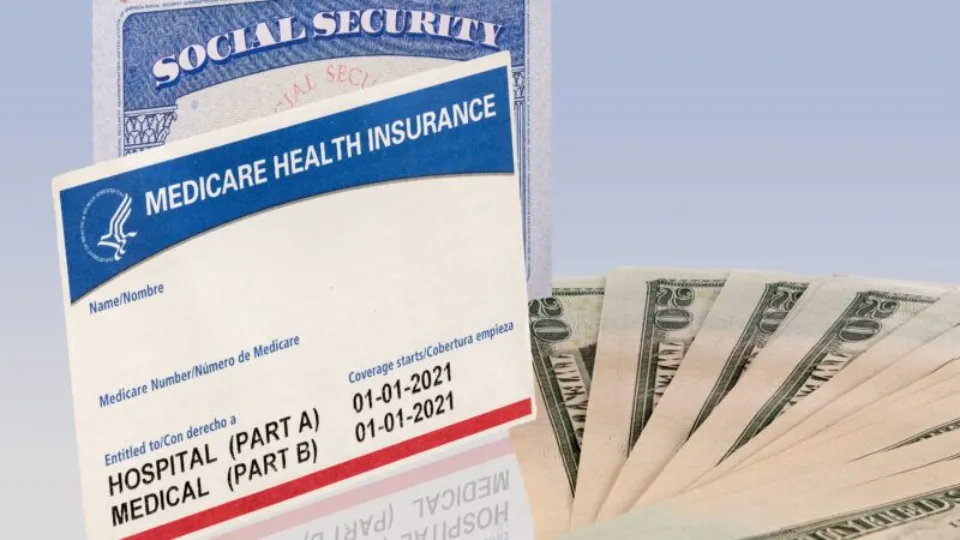Republicans and Democrats have been fighting over who can promise voters that they will make no changes to Social Security or Medicare. The Social Security and Medicare Trustees have recently reaffirmed that the programs’ funds will run out within ten years.
It’s difficult to forget the moment during the most recent State of the Union address when President Joe Biden accused Republicans of wanting to cut Social Security and Medicare and Republicans—including one who shouted from her seat—called that a lie. The mutual refusal to accept blame for the poor financial state of entitlement programs dates back many years. Anyone who monitors the financial performance of these programs will not be surprised by the findings of the Trustees’ report.
Readers may recall that since 2010, Social Security has relied entirely on the IOU from its trust funds to cover retiree benefits. By 2033, all assets will be lost due to a lack of resources. When that occurs, it will only be permitted to make these payments up to the amount of payroll taxes it has collected. That is a reduction of 23%. The Hospital Insurance Trust Fund for Medicare can be used as an analogy in this story. Benefits will be reduced by 11% when the program becomes insolvent in 2031. That is an understatement because the Part B and Part D drug programs of Medicare, which are expected to experience a $1 trillion deficit over the next ten years, are not included in the solvency calculations.
Political malpractice at its finest, pretending that Social Security and Medicare shouldn’t be touched. There will be a $116 trillion shortfall between the two programs over the following 30 years. This figure includes the sizeable interest payments on the debt that the government will accrue as a result. Even though we may be able to muddle through indefinitely, all of that borrowing will cause our economic growth to slow, if not stop altogether, making it even harder to pay for the programs.
Every generation has the chance and duty to leave the country in a better condition than they found it. The Greatest Generation fought in and prevailed in World War II; the least that boomers and Gen Xers could do is to defuse this massive time bomb known as entitlements.
For that, it will be necessary for politicians from opposing parties to work together. Only when they were bipartisan have past reforms been successful. President Ronald Reagan, House Speaker Tip O’Neill (D-Mass. ), and others negotiated the Social Security rescue in 1983.), the Key senators from both parties and the Greenspan Commission. Since both parties were invested in it, this reform was able to hold because neither tried to reverse it. The changes in the 1997 Balanced Budget Act, reached through negotiations between a Republican Congress and a Democratic president, may serve as the best illustration of Medicare reforms.
On the other hand, partisan reform proposals like raising the payroll tax threshold or taxing the wealthy will fail. While each of these suggestions might slightly increase solvency, they are not nearly enough to accomplish the task.
Furthermore, these programs have other problems besides solvency. First, over 15% of the money we work so hard for throughout our entire lives is spent on paying; technically, your employer covers half of this expense, but you almost certainly pay in the form of lower wages. The programs have shortcomings, so even that is insufficient. If young workers could feasibly anticipate receiving all of it back at some point in the future, which most won’t, that might be acceptable.
These programs also discriminate against particular groups, so to speak. Social Security penalizes active seniors so severely that they have little motivation to find alternative sources of income. According to a calculation made by my colleague Chuck Blahous, older workers will receive 2.5 cents in benefits for every dollar they pay in payroll taxes. Younger workers are forced to give vast amounts of wealth to older Americans who are generally better off than they are. According to current projections, future workers will lose net income from Social Security that exceeds 3% of their lifetime earnings. Furthermore, there is a chance that these entitlement programs won’t exist for them when they are ready to retire.
Even though they disagreed on the best course of action, party leaders of both parties acknowledged for a long time that entitlement costs were increasing at an unsustainable rate. Barack Obama, a former president, discussed reducing the increase in healthcare costs. President Joe Biden believed that all spending, including Social Security and Medicare, should be up for reform when he was a senator. However, Biden now brags about how he won’t touch these programs as president.
It’s time for both parties to start being open and honest again.



